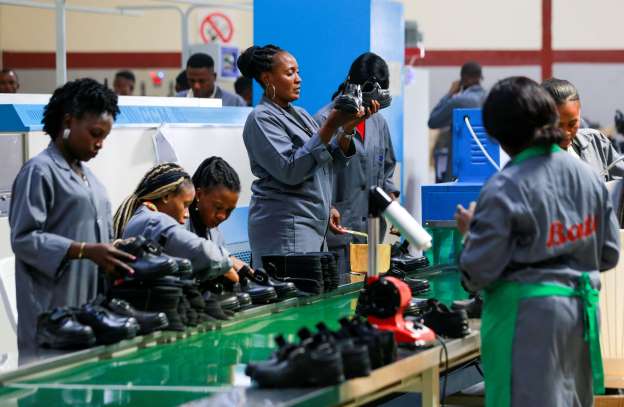Nigeria’s footwear industry holds enormous potential to drive economic growth, create jobs, and reduce dependence on imports, yet it remains one of the most underutilised sectors in the country. At a time when unemployment is high, foreign exchange is scarce, and the need for industrial diversification is urgent, ramping up local shoe production should be treated as a national priority.
The country already has a strong cultural and economic foundation in footwear making. From Aba in Abia State, which has long been known as the hub of locally produced shoes, to small-scale workshops across Lagos, Kano, and Onitsha, Nigeria has thousands of skilled artisans capable of producing durable, fashionable, and affordable footwear. However, these producers are constrained by a lack of modern machinery, inadequate access to credit, and poor infrastructure, leaving the market dominated by cheap imports from Asia. The result is a paradox: a nation rich in human talent and raw materials still spends millions of dollars yearly importing shoes that could easily be made domestically.
Expanding the capacity of local shoe manufacturing would deliver multiple benefits. It would generate massive employment opportunities, especially for young people, as footwear production is highly labour-intensive. It would also provide a significant boost to small and medium-scale enterprises, which form the backbone of Nigeria’s economy. By empowering these businesses with better equipment, access to funding, and training, Nigeria could transform a largely informal industry into a formal, export-driven sector.
Beyond the domestic market, Nigerian-made shoes have a ready market across Africa and even beyond. With the African Continental Free Trade Area (AfCFTA) offering access to over a billion consumers, Nigeria stands a chance of positioning itself as the continent’s footwear hub. Countries like Ethiopia have already leveraged leather and footwear manufacturing to expand their export base and create jobs. Nigeria, with its vast livestock resources and leather industry, has no excuse not to compete in this space.
Government support is crucial to unlocking this potential. Policies that promote access to low-interest loans for shoe manufacturers, tax incentives for investors in the sector, and infrastructure development in industrial clusters like Aba would significantly boost production. Equally important is curbing the influx of substandard imported shoes that undercut local producers. Stronger enforcement of quality standards and trade regulations would help level the playing field.
Nigeria cannot continue to ignore industries that hold the key to reducing unemployment and stimulating growth. By scaling up local shoe production, the country would not only save foreign exchange and diversify its economy but also showcase its craftsmanship to the world. The footwear industry is not merely a business opportunity; it is a pathway to industrial transformation that Nigeria cannot afford to overlook.





